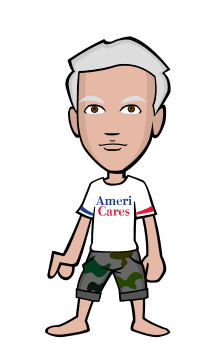Business has become a dirty word. Doing business with the poor seems taboo, shocking, unthinkable. But what if business could improve the lives of the world's poorest people?
According to the World Resources Institute, there are 4 billion people worldwide who live below the Western poverty line. 1 billion of them live on less than $1 per day. They are known as the base of the pyramid. Anyone travelling to the developing world has seen slums and shantytowns. The base of the pyramid live in squalid conditions -- without access to clean water, toilets or basic medicine. Children play in sewage. Young adults walk around crippled with polio. Older adults, blind from cataracts, are led by hand or sit idly.
The base of the pyramid are not just poor -- they are socially and economically excluded. Their lives can be uprooted at any moment, since many lack a formal legal status. They work odd jobs or farm to keep themselves alive, but without steady employment, they can go for weeks or months without work. They have little or no formal education.
One of the biggest injustices at the base of the pyramid is that they pay more for goods than anyone else. In a slum outside Mumbai, a minute of phone time is twice as expensive as higher-income areas. Diarrhea medication is $20.00 in the slum, compared to $2 in a middle class neighborhood. Clean drinking water is 37 times more expensive than it is for the middle class. Loans in the slum have interest rates of up to 1000%.
Loan sharks, gangsters and other local monopolies are making the base of the pyramid even poorer. This is a documented problem throughout the developing world and it has a technical term: the "base of the pyramid penalty."
Social businesses are finding creative ways to reduce the BoP penalty. They make lives better for the base of the pyramid in 3 important ways:
Provide Access With creative financing, business can provide products and services that were previously out of reach. Microfinance organizations like Kiva provide loans to small groups at reasonable rates. At the Aravind Eye Hospital, cataract surgeries are offered on a sliding scale where customers pay what they can afford. PayGo Solar delivers renewable energy to people in slums, who pay for small amounts of energy with phone credit.
Create Scale By helping local producers make more goods more efficiently, businesses keep costs low. Tiviski Dairy in Mauritania collects milk from nomadic herders and processes it all in a central facility, keeping milk prices affordable. Honey Care Africa provides state-of-the-art hives to small beekeepers in East Africa, which increases the amount of honey they produce. Before Honey Care, honey was imported to keep up with local demand.
Build Ecosystems There are so many gaps at the base of the pyramid that businesses sometimes need to build out entire ecosystems. Patromonio Hoy helps poor families in Mexico build houses. In addition to providing housing materials, Patrimonio Hoy offers advice from trained professionals, and microcredit. Eco-solutions in India invented a toilet that can be used without water. To effectively distribute the toilet, eco-solutions also provides construction, hygiene education and post-construction servicing.
Some might argue that poverty alleviation is an issue for non-profits. Even with the significant progress that international organizations have spurred, we still have a long way to go. The UN reports hat there are more cell phones on the planet than toilets. In Africa alone, 345 million people do not have access to clean drinking water. Preventable diseases like diarrhea, tuberculosis, and respiratory infections kill 5.5 million people in developing countries each year.
Why should the world's poorest people pay more for food, clean water and other necessities than everyone else? If we want to improve the lives of the world's poorest 4 billion, we need to tackle the base of the pyramid penalty. Business can bring fair prices to the people who need it the most.



